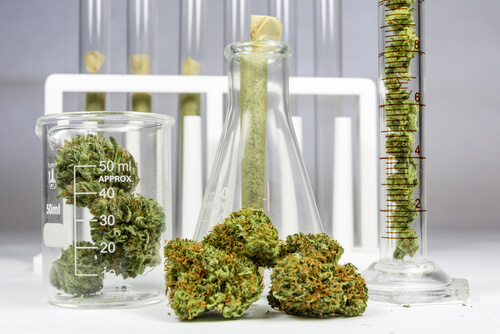
Cannabidiol is an industrial hemp/cannabis Sativa and marijuana compound. It is among the many identified phytocannabinoids. Cannabidiol has been marketed as a way of treating many different health issues, including anxiety, seizures, chronic pain, and sleeplessness. It comes as an oil and several other kinds of products in Wisconsin. Despite CBD’s growing popularity, many have often been asking questions regarding it. Here is a compilation of those CBD questions and answers, most of which concern cannabidiol in Wisconsin.
Is Cannabidiol Legal In The Wisconsin State?
Selling a CBD item would be legally allowed in the US state provided that it is an industrial hemp derivative. For a plant from the Cannabaceae family to be regarded as hemp, it has to have 0.3% or less tetrahydrocannabinol content. That means even if that plant has slightly more THC than it, it would not be deemed hemp, and the product would not be legal here.
Marijuana and industrial hemp are categorized as cannabis strains, and these plants look almost the same to the human eye. Anyhow, these are different when it comes to their chemical composition. Hemp has much cannabidiol, but little to no THC. On the other hand, there is more THC in marijuana than in hemp.
Can It Give Me A High?
To cut the long story short, no. By ‘high’, people refer to a euphoric feeling that comes as an effect of using marijuana. The effect is attributable to the higher THC content in marijuana. As hemp is low in THC, it will not have this effect on your mind. In fact, cannabidiol can inhibit that effect of tetrahydrocannabinol.
Why Does CBD Appear To Be Available Everywhere Nowadays?
The rules and regulations that govern cannabis derivatives have been changing at a federal level and state level. Wisconsin made cannabidiol’s possession legal way back in 2017. Farmers have been growing cannabis as per the hemp pilot scheme of the Wisconsin state since then. After that time, CBD goods have popped up at stores, plus more and more agriculturalists have cultivated the cannabis herb for various commercial purposes. Read on for more CBD oil questions from Wisconsin natives.
In What Way Does Cannabidiol Work?
CBD can interact with the so-called endocannabinoid system in the human body. The ECS can affect your mood, appetite, pain perception, and memory. Substances made in the body, like endogenous cannabinoids, and outside of it like THC and cannabidiol can affect the ECS. Tetrahydrocannabinol can bind to some cannabinoid receptors, making the brain release dopamine, thus causing a high. Cannabidiol molecules can also bind to some of those receptors, in a different way from tetrahydrocannabinol. This causes chemical reactions within the human body instead of that THC-induced high.
Is Cannabidiol Habit-Forming?
In short, the answer is no. As per a WHO report from 2017, cannabidiol has no effect suggestive of misuse or dependence possibility in its users. There has not been any evidence that pure CBD caused public health issues.
Which Parties Grow Industrial Hemp For CBD?
More and more agriculturalists in Wisconsin are doing this. The state had 180 registered and licensed hemp growers in 2018, as per Wisconsin’s main consumer protection agency named DATCP. On the other hand, there were over 1,000 more registered growers last year, and most of them planted a herb. Those agriculturalists grew hemp across 2185 hectares of hemp at more than 1,200 locations. This means that the average industrial hemp growing process happened in some acres.
Is Hemp A New Product In Wisconsin?
To put it briefly, no. Before anti-drug legislation destroyed the hemp sector, it was one of the top states in the US for hemp. As per the Wisconsin Center for Investigative Journalism’s blog from 2019, Wisconsin was the leading US state for hemp production back in the 1940s. University researchers started to grow it in the year 1908, and 9 years later, agriculturalists had 2832 hectares of hemp under cultivation.
In the Second World War, the requirement for hemp went up because of its use in rope manufacturing. At a point in the wartime, there were 42 industrial hemp mills in this state.
Will Wisconsin’s Government Legalize Recreational Marijuana?
We do not know whether it would make this move. Proposals to stop treating marijuana as an illegal substance, have not had any success so far. The Wisconsin Governor, Tony Evers, recommended making medical marijuana legal as well as decriminalizing the possession of a maximum of 25-gram recreational marijuana. Anyhow, Wisconsin’s Republicans took those provisions out of the state budget.
At the same time, Minnesota, Michigan, and Illinois legally allow the utilization of medical cannabis, whereas Illinois and Michigan legally permit that of recreational marijuana. Are you wondering what the difference between recreational marijuana and medical cannabis is? If yes, know that the distinction is in its purpose: the former is for something recreational, whereas the latter is medical.

